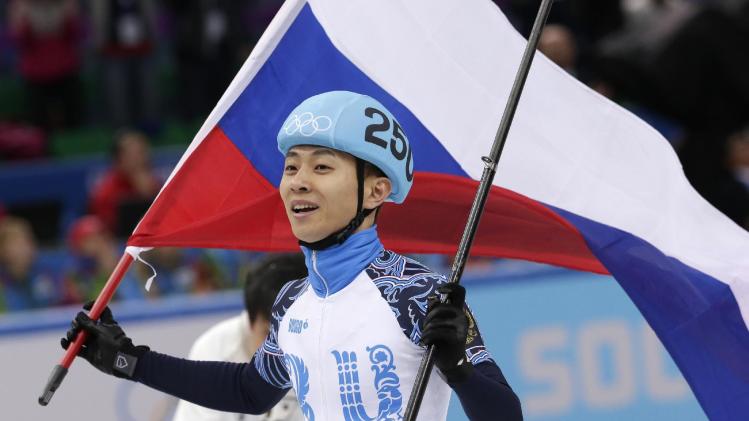Patriotism is an interesting thing and I’m not sure even a whole Social-30 course on nationalism enlightened me.
It doesn’t hold much of a role in my daily life, but every two years, over the course of a few weeks, it becomes everyone’s focus: after all, all the fun and pride and joy of the Olympics comes from being patriotic.
The newspaper’s headlines are dominated by Olympic successes and failures. Replays and live competitions air practically 24-7. News reports revolve around recaps.
I find it an incredibly fun time.

But even among the fanfare, I find it sometimes difficult to celebrate sincerely.
Feeling “pride” when a Canadian athlete or team wins a game doesn’t feel justified—nor does counting all the medals as those under “Canada.” Rather than celebrate individual successes, the focus is so often on the medal count, the gross number predicted, expected, despaired, and eagerly compared.
During this time of year I always hear “we” used in reference to the Canadian team. I understand rooting for those who came from your country, but I doubt all athletes are competing for their countries, and even if they are, it seems somewhat arbitrary to believe your victory is also shared by a large group of people with whom you only share your nationality. (Yes, Own the Podium has been investing exorbitant funds into helping athletes, but surely first comes their own effort, their families, friends and coaches, not a faceless taxpayer base.)

My hesitancy may be derived in parts from the uncohesive and perhaps obsolete nature of Canada’s nationalism: politeness, beer, and beavers (an over-exaggerated perception of the general populace, something I cannot legally consume, and a creature that I have yet to encounter except on a coin). Additionally, it seems that an inordinate number of Olympians come from Quebec (Bilodeau, Dufour-Lapointe, etc), and considering the perpetual undercurrent of separatism, I wonder whether (but certainly hope) they enjoy competing under a Canadian flag.
Needless to say, every athlete competing at the Olympics does so in their national colours–and I expect they realize what they are getting themselves into: potentially becoming the “face” of their nation. Thus, pride and all, as long as athletes feel patriotic themselves and are competing with the purpose of representing their country, I would think this is what they would like. In any case, who would turn down a whole nation feeling proud of you?

Of course, this is probably what sets the Olympics apart from other world competitions, whose results should be just as viable and prestigious, and yet never receive as much attention as the Olympic gold. In the Olympics, the lines are drawn along national borders and by doing so, attract a global audience and provide a basis for an international interaction.
For the athletes, it is about the experience itself, and for the viewers, it is about seeing the whole world come together in an international tradition.
And so, unabashedly and shamelessly I can continue to be a culprit as well, occasionally celebrating “Canada’s” victories as though they are everyone’s.

